Protecting those on the frontlines
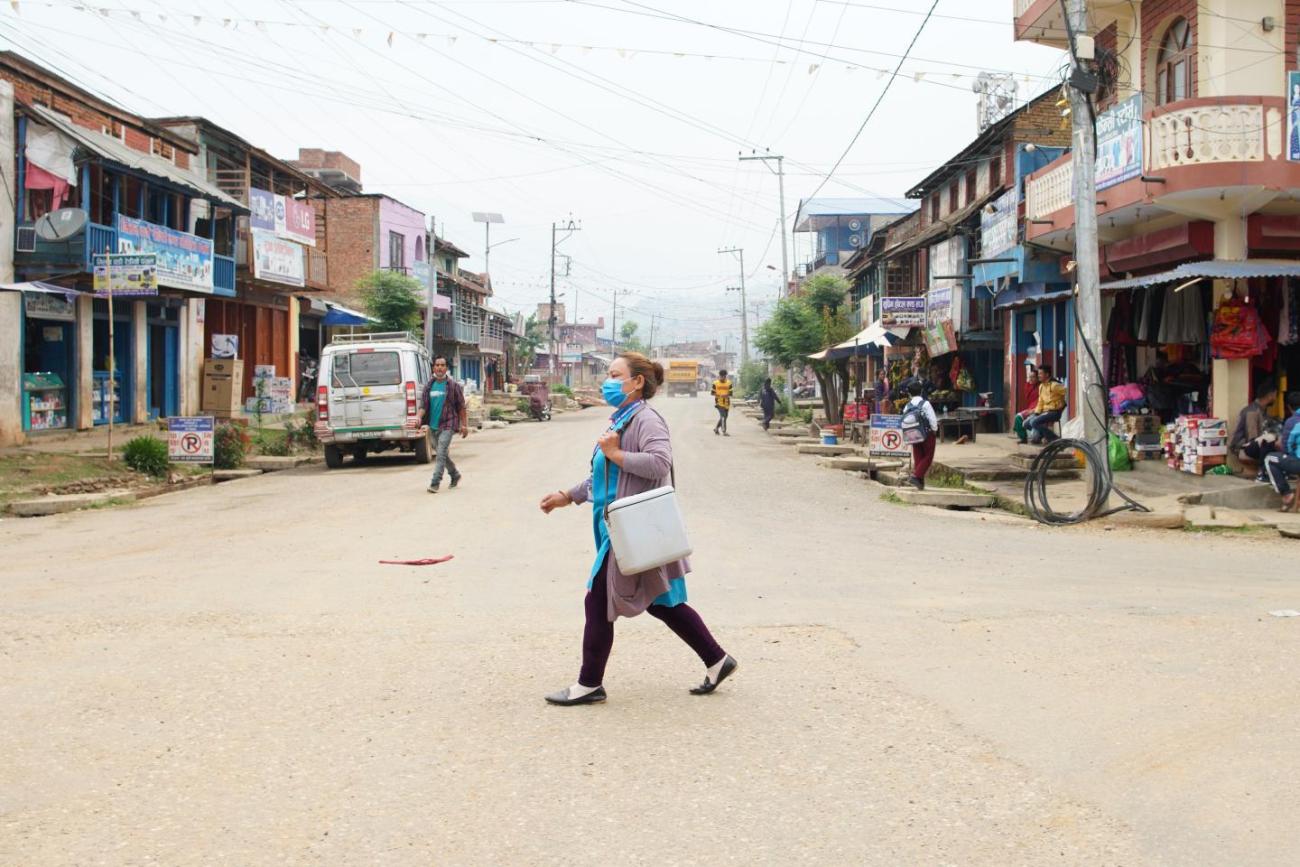
Healthworkers and frontliners in Gorkha District, the epicenter of the 2015 earthquake, are gaining renewed confidence in serving communities
Gorkha, Nepal: It’s a busy day ahead for Rama Thapa Magar. An auxiliary health worker at the Palungtar Community Health Center in Gorkha District in north-central Nepal, Rama has been designated one of the vaccinators for the latest phase of the COVID-19 vaccine drive, in which healthworkers and frontliners around the country are getting their second dose of the COVID-19 vaccine.
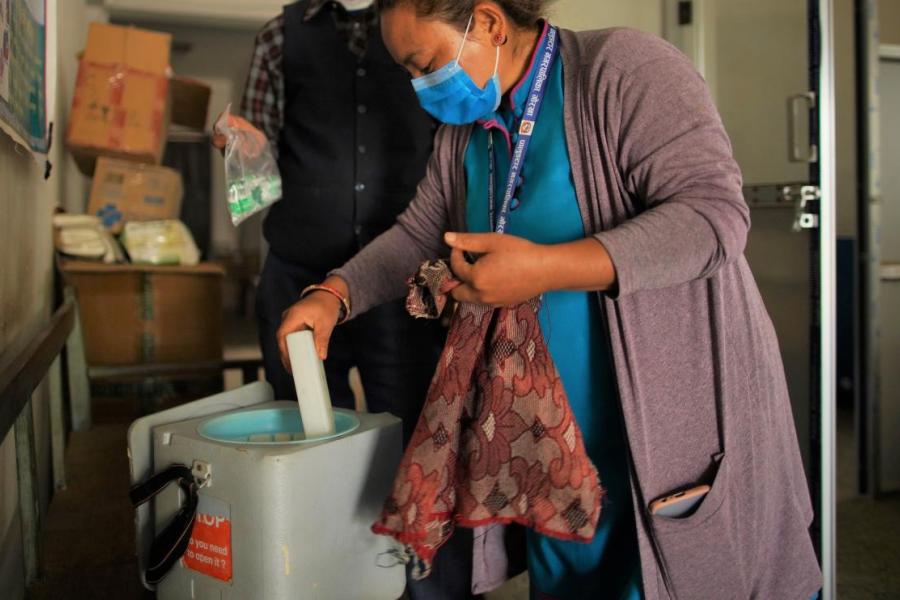
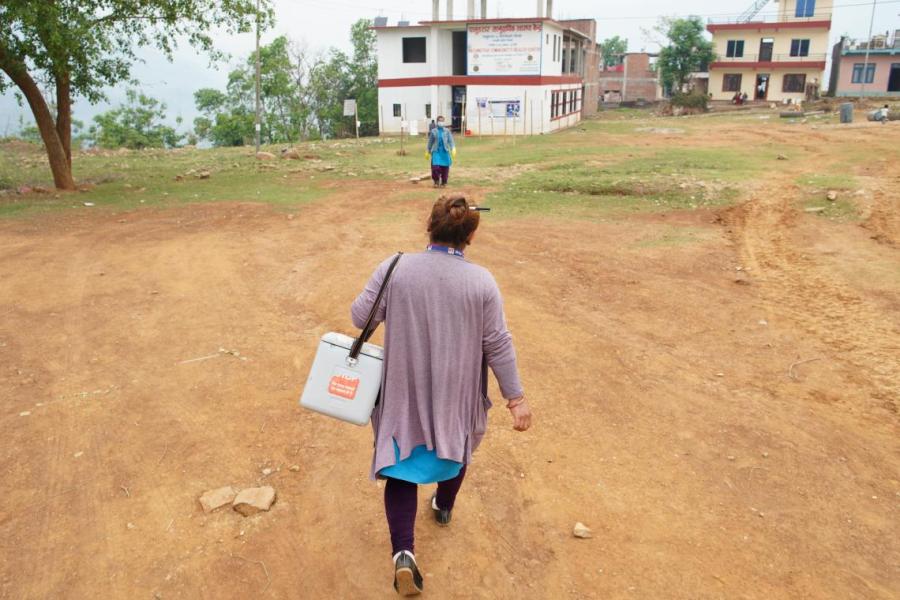
Before vaccinations can start, however, preparations are in order – starting with a visit to the vaccine storage room in nearby health office. Here, Rama transfers the required number of vaccine vials from the refrigerator into the carrier she has brought with her, before walking back to the health facility. Then, she and her colleagues set up dividers on the premises to ensure people can line up properly – along with putting up signs reminding them to keep their masks on and keep a distance from one another.
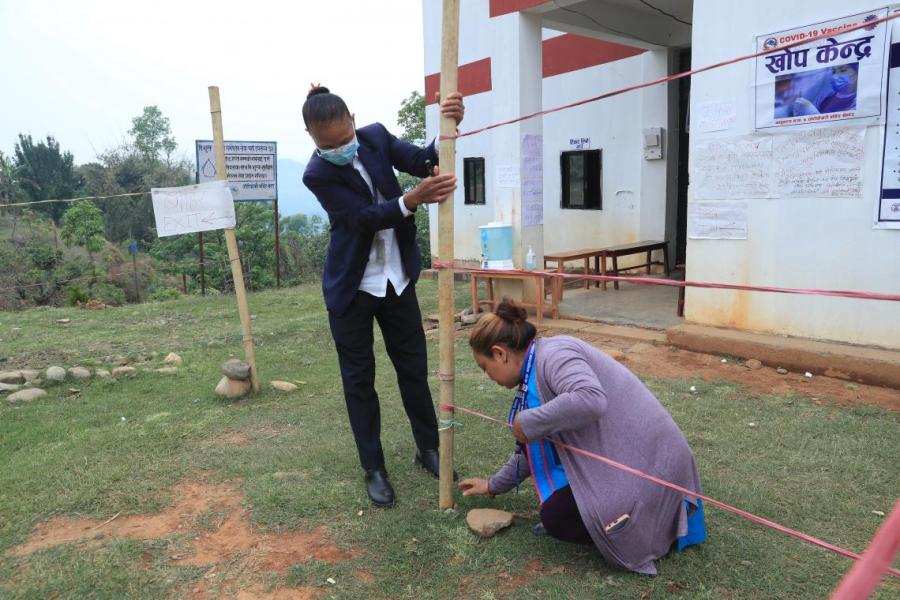
Soon, people have begun to arrive outside, and Rama – who is set up in the vaccination room inside the facility – starts administering the shots one by one. As a healthworker herself, she has already received both doses, and says it is rewarding to be able to give to others that sense of peace and protection that she is feeling.
“This past year has been difficult especially for those of us working in the health field,” she says. “We had to adapt to working in a completely new reality with new risks.”
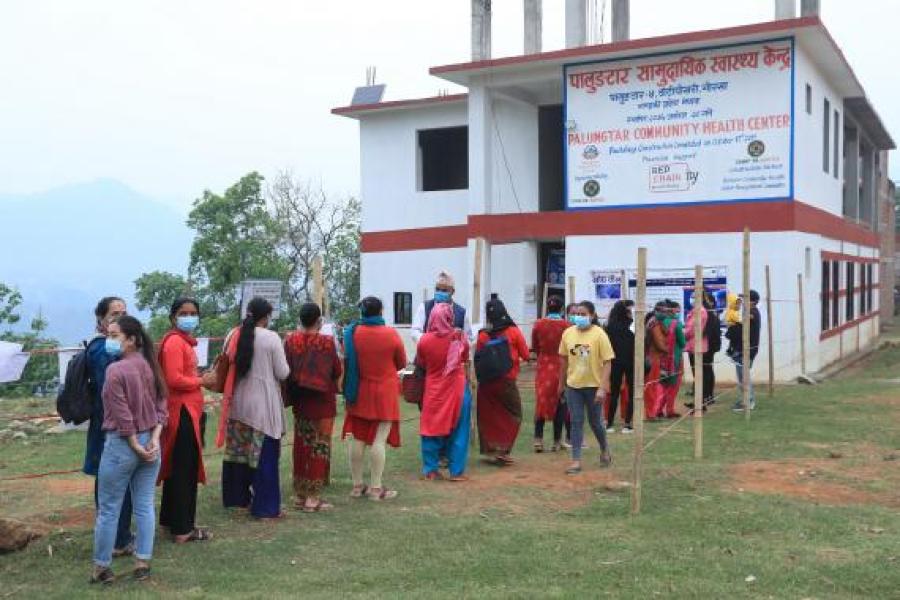
This included having to wear protective gear all the time on duty, and making sure patients were instructed wash their hands and avoid crowding. Eventually, she says they adjusted. “We’re here to serve the community regardless of the situation.”
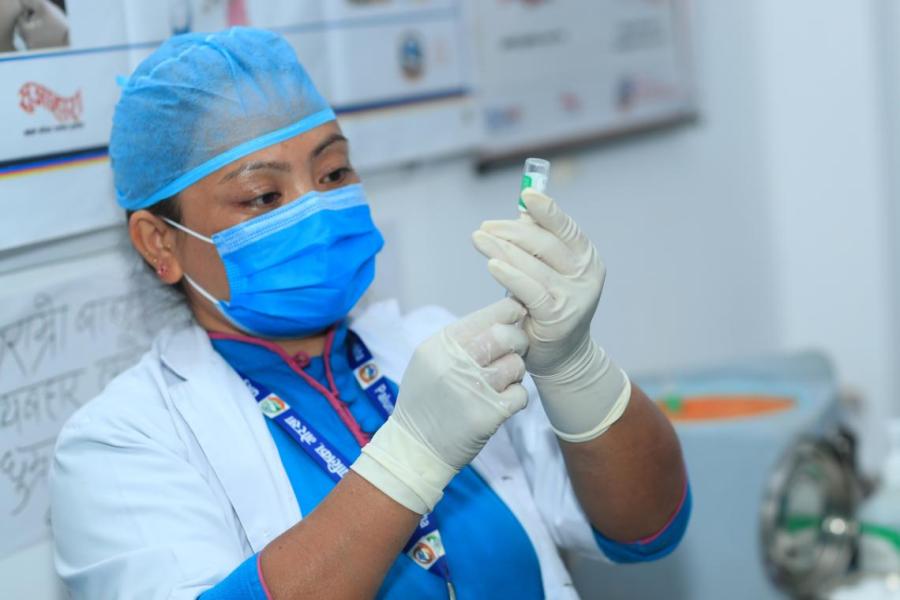
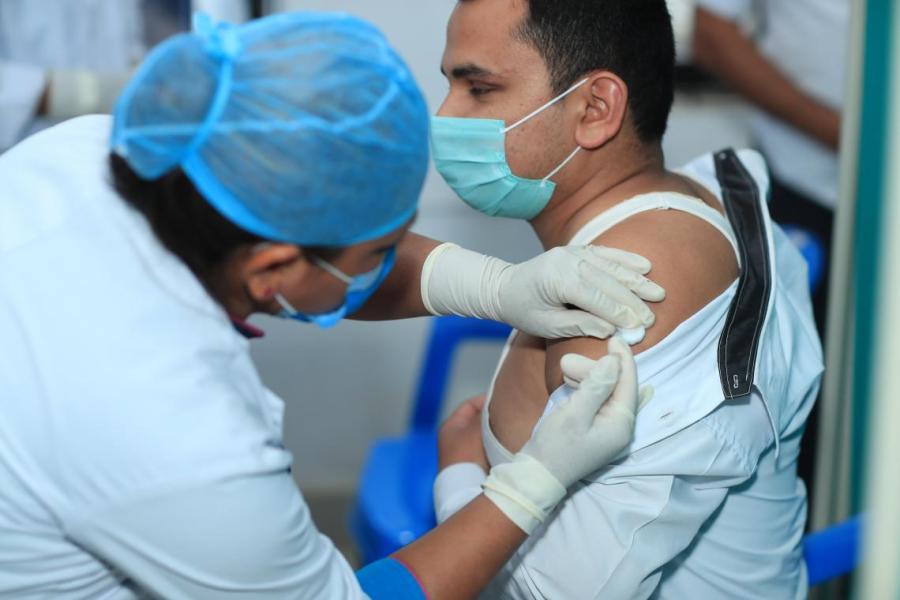
Navigating a different crisis
Six years ago, Gorkha was reeling under the impact of a wholly different crisis. As the epicenter of the massive earthquake that shook Nepal in April 2015, it had been the site of unthinkable devastation. Health infrastructure was hit particularly hard in the disaster, with many hospitals and health posts thoroughly damaged. To ensure continuity of essential health services, UNICEF and partners had supported the rebuilding of many health facilities, as well as providing critical cold-chain support – such as vaccine refrigeration and transportation equipment, and technical and logistical assistance – to prevent disruption in routine immunization.
And today, at a time when we are navigating another crisis in the form of COVID-19, those very efforts are helping to roll out the vaccination drive in the district. Further support to the campaign has come from the COVAX Facility, a partnership between CEPI, Gavi, UNICEF and WHO, made possible through generous donor support from governments, international organizations, foundations and the private sector. On 7 March 2021, Nepal had received 348,000 doses of COVID-19 vaccines from the Facility as part of the first consignment. These vaccines are now being deployed in the latest phase of the drive, with the aim of ensuring healthworkers and frontliners complete their COVID-19 vaccination.
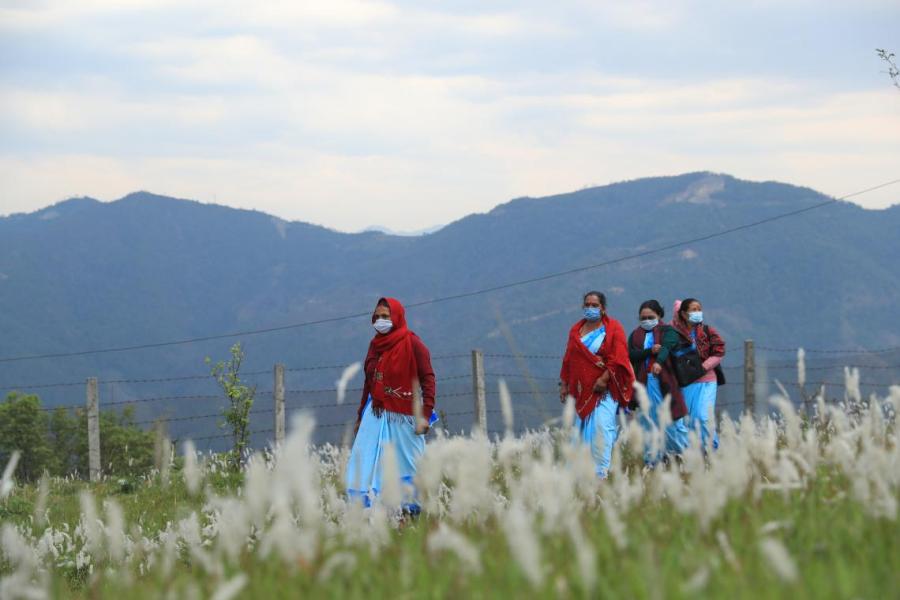
Among them is female community health volunteer (FCHV) Homaya Gurung whom we meet en route to the Thalajung Health Post – another of the designated COVID-19 vaccination centers in Gorkha District – and who is soon joined by other FCHVs also headed the same way to get their second dose.
Homaya had been very pleased to learn that FCHVs had been included in the first priority group in the COVID-19 vaccine drive.
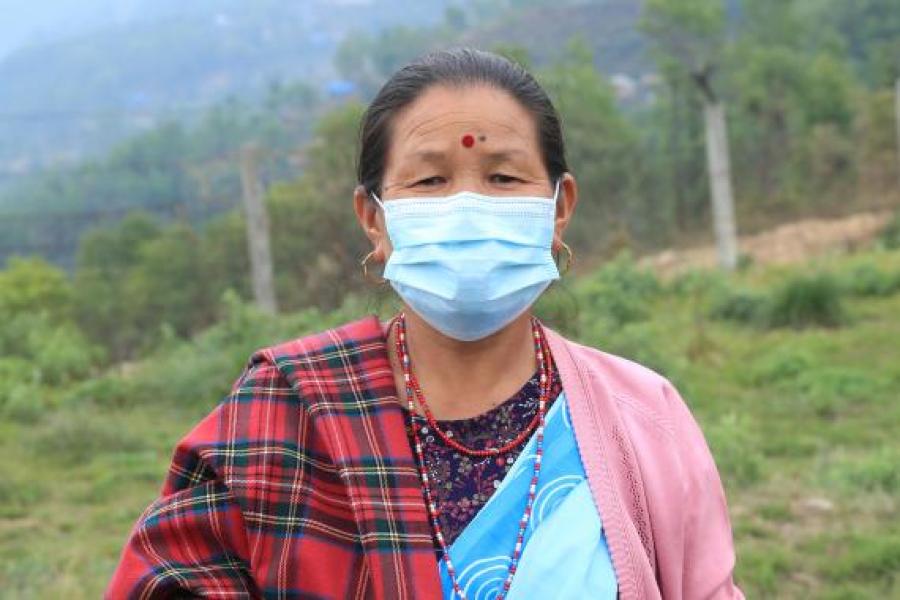
“It felt like our work and contribution was being recognized,” she says.
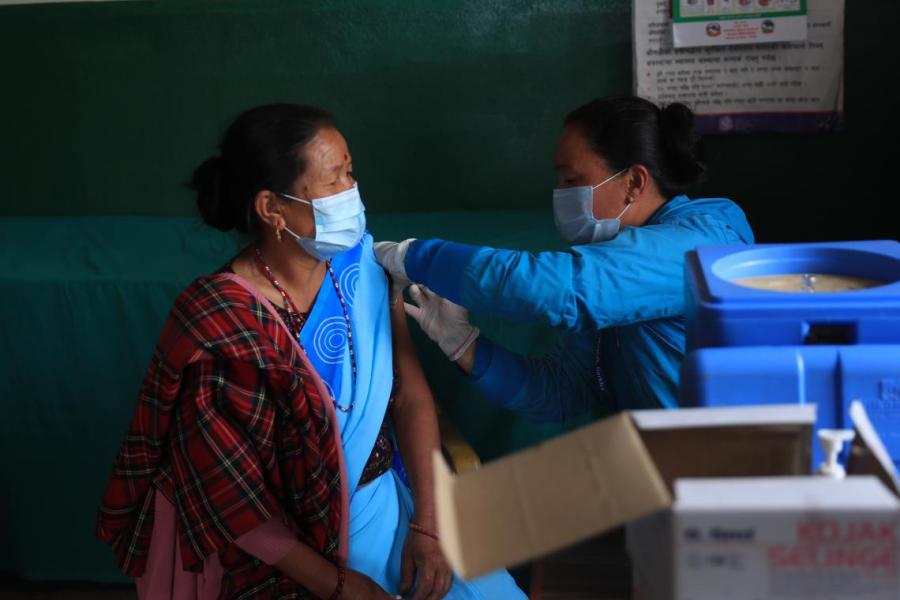
Prakash Chandra Adhikari, chief at Thalajung Health Post, says this is something a lot of people – including himself – have felt and expressed. “The entire world has been waiting for the vaccine for so long, so knowing that as healthworkers we were put first in line to get it has been very gratifying.”
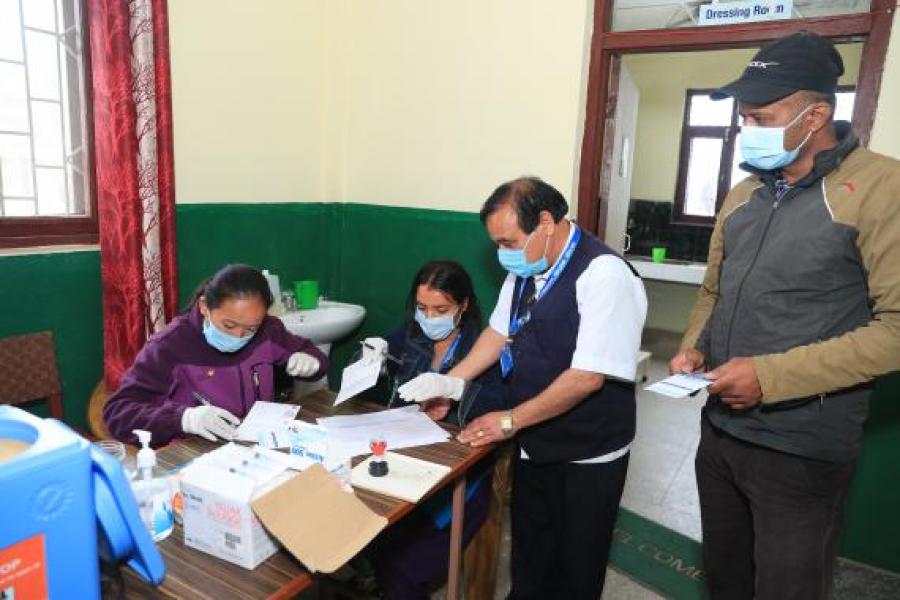
For Prakash and his team at Thalajung, which also serves as a birthing center, working during the pandemic was challenging, to say the least. One of their primary concerns was the impact the pandemic would have on routine immunization services, but thankfully, he says that apart from an initial disruption, they were able to quickly resume and continue providing vaccines to children.
Now that the health post staff are all vaccinated, he says there is renewed enthusiasm at the facility.
“Children and families rely on us to be present and active. Now that we are protected, we feel more confident in being able to protect them.”


